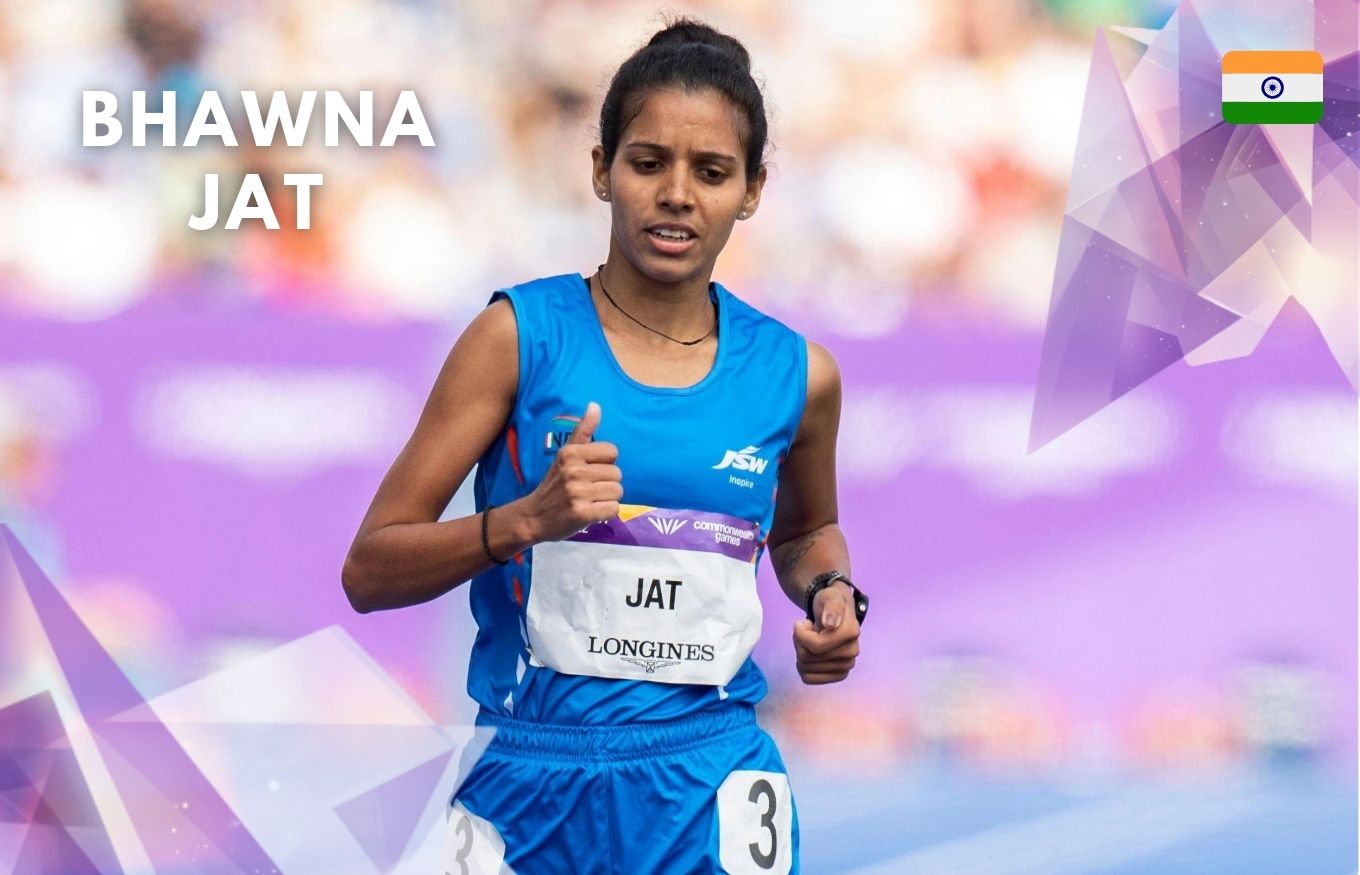Indian race walker Bhawna Jat has been handed a 16-month ban by the National Anti-Doping Agency (NADA) for failing to comply with whereabouts regulations.
This decision marks a significant setback for the athlete, whose suspension will extend from August 10, 2023, to December 10, 2024. The ruling, finalized by the Anti-Doping Disciplinary Panel (ADDP) on July 10, 2024, was only officially posted on NADA’s website recently, highlighting a delay in the dissemination of the information.
The 28-year-old Bhawna Jat, who competed in the Tokyo 2020 Olympics and holds a national record in the women’s 20km race walk, faced a provisional suspension last August. This interim ban barred her from participating in the World Athletics Championships 2023 held in Budapest, Hungary. Her failure to comply with the anti-doping regulations has had significant repercussions on her athletic career.
NADA’s Registered Testing Pool (RTP) includes athletes who are subject to strict reporting requirements. Each year, athletes in the RTP are reviewed quarterly, and they must provide detailed whereabouts information. This includes their current addresses, training locations, work, and competition schedules.
Additionally, they are required to give NADA a 60-minute time slot each day during which they can be tested. Non-compliance with these requirements is considered a filing failure, which can result in serious consequences.
For Bhawna Jat, her ban stems from missing two doping tests scheduled in May and June 2023. She was also reported for a filing failure in the last quarter of 2022. These lapses in compliance have been deemed serious enough to warrant a lengthy suspension.
Bhawna has attributed these failures to technical difficulties with the mobile application used to report her whereabouts. She explained that the issues with the app, coupled with the loss of her phone, further complicated her ability to meet the reporting requirements. Despite these explanations, the regulatory body deemed the lapses as breaches of the anti-doping regulations, resulting in the substantial ban.
The impact of this suspension is significant, not just for Bhawna Jat personally, but also for the broader context of Indian athletics. The case highlights the rigorous standards set by anti-doping authorities and the critical importance of maintaining compliance with all regulations. Athletes in the RTP are under intense scrutiny and must adhere to strict reporting protocols to avoid such penalties.
Bhawna Jat’s situation underscores the challenges faced by athletes in managing both their sporting commitments and administrative responsibilities.
While the technical issues she encountered are not uncommon, they illustrate the need for athletes to have robust systems in place to ensure they can meet all regulatory requirements. The importance of maintaining accurate and timely whereabouts information cannot be overstated, as any lapse can lead to significant consequences.
The 16-month ban will keep Bhawna out of competition during a crucial period, affecting her ability to participate in upcoming events and potentially impacting her career trajectory.
This suspension serves as a reminder to all athletes about the importance of diligence in fulfilling anti-doping obligations. It also emphasizes the need for continued support and education for athletes to help them navigate the complex regulatory landscape of competitive sports.
As Bhawna Jat navigates the consequences of this ban, it will be important for her to focus on resolving the underlying issues that led to the non-compliance. This may involve addressing technical challenges, improving communication with anti-doping authorities, and ensuring that she adheres strictly to all future reporting requirements.

